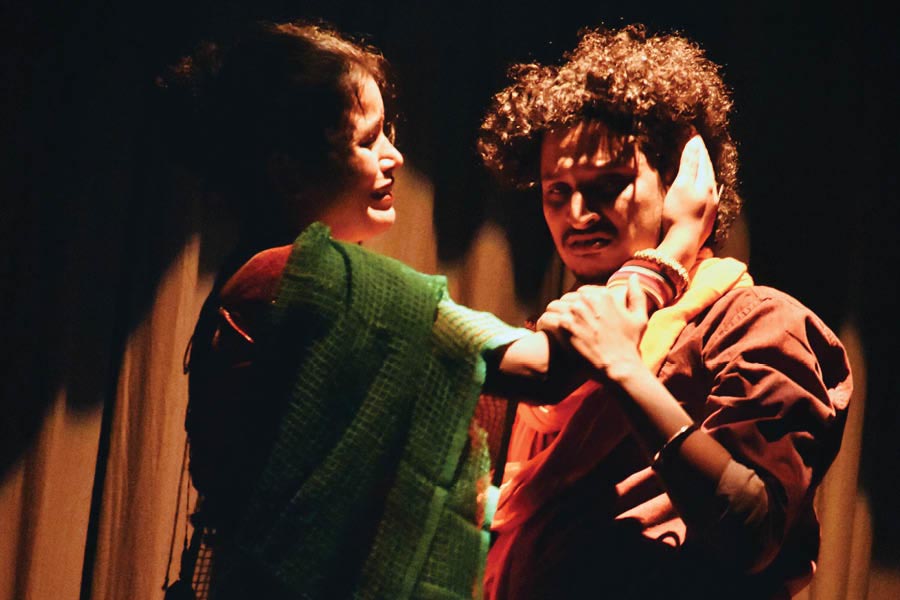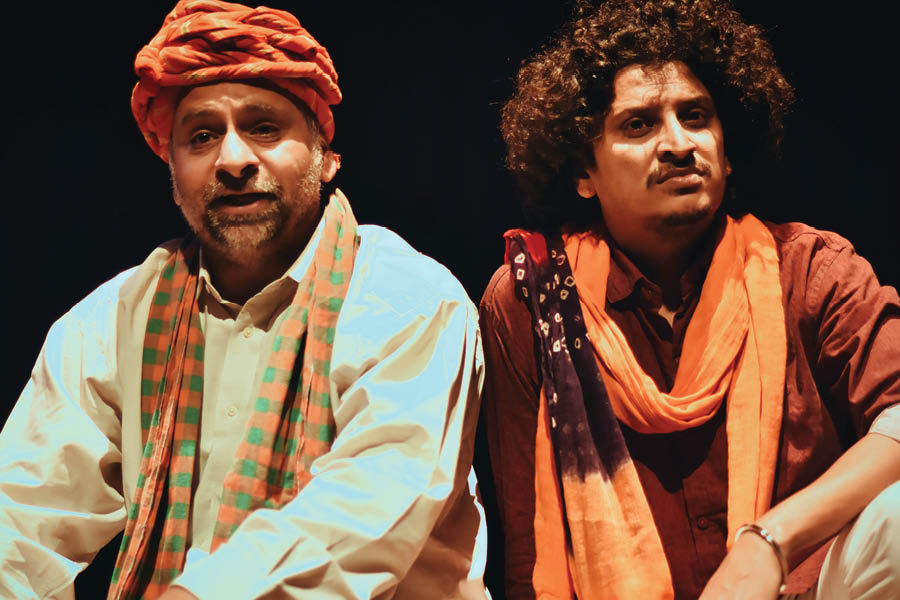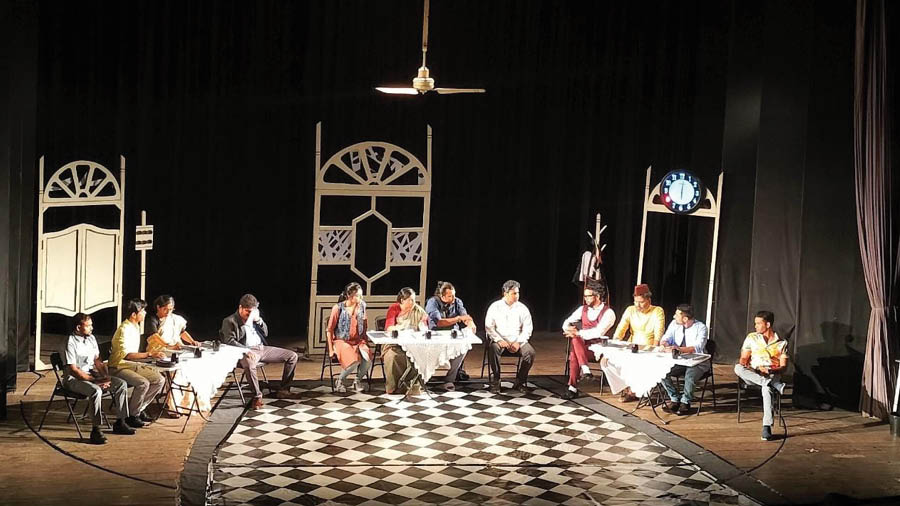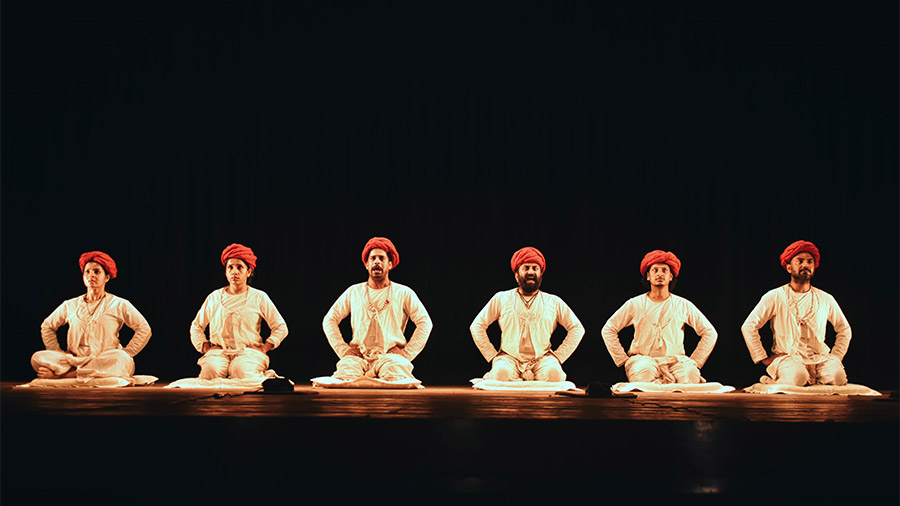There is a special bond between the city of Kolkata, winters and theatre festivals. Every time winter visits the city, theatre festivals spring to life. This time around, Nandikar brought its 40th National Theatre Festival to Kolkata, hosted between the Academy of Fine Arts and Rabindra Sadan. On December 20, Backstage, a theatre group from Uttar Pradesh, performed their Hindi play called Kharu Ka Khara Qissa at the Academy. Before the play, My Kolkata caught up with Pravin Shekhar, the National Award-winner and director of Kharu Ka Khara Qissa.
Based on the story Bhediye by Hindi absurdist writer Bhuvaneshwar, the play tells the story of a man named Kharu who lost his father and three women he was transporting to “hungry wolves” while on a journey to the city. It is a commentary on the sacrifices of human life and how the vices of society surround us at every turn.
‘We have wolves within us, too, which we sometimes refuse to accept’
“Society is full of bhediye or wolves, who continuously chase us and hide behind many masks, be it politics, culture, or saving our religious identities. However, that’s not all. We have wolves within us, too, which we sometimes refuse to accept and then it becomes dangerous for all,” said Shekhar. He added, “It’s important to identify these problems, both in society and within oneself. What is also important is learning to deal with this brutalisation of self”.
Shekhar explained how his play dealt not just with “wolves, but also with how they affect one's relationship with their family and the self”. The play explores other themes as well, such as the tenuous relationship between poverty and ethics as well as the need to sacrifice the self to protect others. While the stories that Kharu’s father narrates to his grandson about his different encounters with wolves carry a covert political commentary, the social commentary is starker, evident in how a woman chooses sex work in the city over poverty in the village.
‘You don’t feel like an outsider when you step into Kolkata, it’s ever-welcoming’

Shekhar believes that theatre is important for self-discovery, not just the creation of art Nandikar
For Shekhar, Kolkata has always been a special place: “Kolkata is a hub not just for theatre, but for the arts and culture as a whole. For an artist, a writer or any other kind of cultural practitioner, visiting Kolkata and getting to perform here is like a pilgrimage.” Shekhar acknowledged that he learns something new every time he comes to Kolkata, which drives him to come back for more.
Delving deeper into Kolkata’s speciality, Shekhar said: “What makes performing in Kolkata even more special is the audience. Whenever we perform here, be it good or bad, we feel that we’ve been seen by genuine eyes, eyes that appreciate the art form and are there to support us in our journey. Other cities aren’t like this. You don’t feel like an outsider when you step into Kolkata, it’s ever-welcoming,” noted Shekhar.
Shekhar firmly believes that theatre festivals like the one conducted by Nandikar have a crucial role to play in the survival of theatre in the country. “Active efforts are being made to change us. Television, OTT platforms, cinema, etc are trying to change the way people are. They’re all trying to make people think, feel, and talk the same way, and create an injured mind,” said Shekhar. To convert such minds into creative and fertile ones, theatre and theatre festivals are important, believes Shekhar. “Theatre festivals celebrate a process of self-discovery, not just the creation of art… They help you recognise yourself and connect with a lot of people instantaneously. They need to be supported because they help to keep hope alive,” concluded Shekhar.


